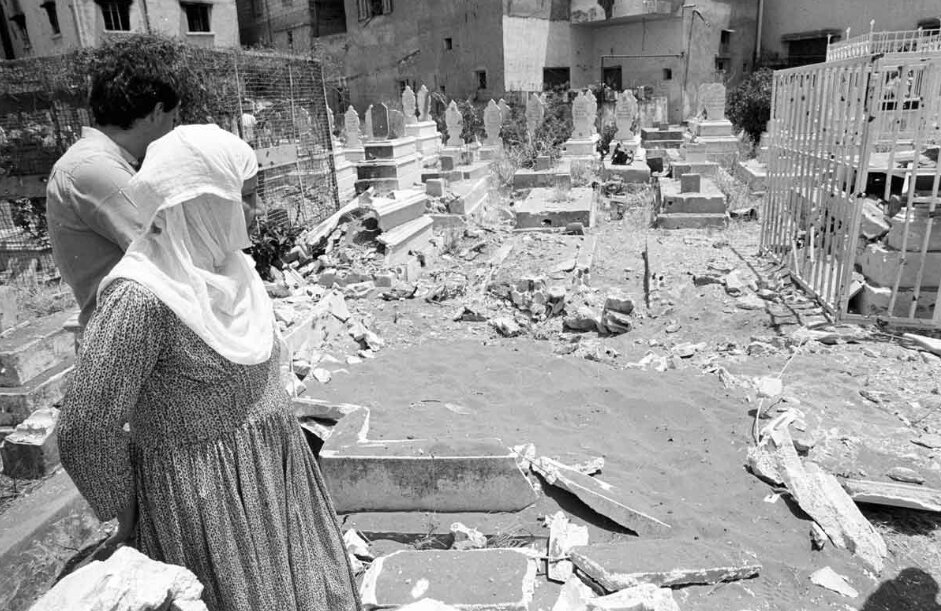50 years after eruption of Lebanon’s infamous civil

BEIRUT — Those who witnessed the bloody events of Lebanon’s civil war, which was triggered on April 13, 1975, had no idea that it would spark a series of crises 50 years later!
Historians of Islamic theological sects note that the name given to the Murji’ah sect is derived from the Arabic verb “arja’a,” which means to delay.
According to Ibn al-Athir, they were called Murji’ah because they prioritized the importance of one’s professed faith over his deeds.
They also hold the false opinion that Muslims should practice postponing judgment on committers of major sins to God alone.
The Murji’ite doctrine was a methodology adopted by the Umayyads, following the assassination of Imam Ali and the self–appointment of Mu’awiyah ibn Abi Sufyan as Caliph in a bid to silence opposition to the validity of their caliphate.
This is what Geagea has held to silence the Lebanese. Today, in particular, the victims of the civil war, especially those killed at the hands of the Lebanese Forces militia, have not yet forgotten the devastating horrors caused by Geagea and other civil warlords.
But why so much focus on Samir Geagea? It is simple and plain. He was the successor to Bashir Gemayel, whom the enemy’s army hired after 1980 as the spearhead for eliminating the resistance movement because he volunteered for a mission the enemy failed to achieve militarily and politically during the ongoing US-led Israeli aggression.
Samir Geagea dictates his unhinged positions to others without the slightest shame about being a pawn in the hands of the American surveillance den (embassy) in Beirut.
At that time, the US government, in the context of the Cold War, sought to prevent Lebanon from transforming into a socialist camp.
Geagea has learned nothing from the civil war, nor from the consequences of toying with civil peace, sectarian and religious incitement, or the dream of erasing a particular sect from existence, as he is attempting to do today with the popular base of the Shiite factions.
Geagea has never condemned the Israeli aggression but condemned Hezbollah. He “uses these violations (Israeli violation of Lebanese territory) as an excuse to preserve his existence,” as he claims in light of repeated Israeli attacks and its disregard for any international resolutions, agreements, or commitments.
In the aftermath of every war waged by the Israeli enemy, some Lebanese blame the victim, not the perpetrator, to the point of almost aligning with the enemy in justifying massacres and attacks.
This time, the situation does not seem different from what it was after the July 2006 war, when WikiLeaks documents revealed elements of the anti-Hezbollah team who acted as informants for the enemy.
Then, while the Lebanese citizens were returning to their destroyed homes and had not yet buried their martyrs, the same voices emerged to herald the defeat of the resistance and demand its disarmament.
Civil war is nothing more than an Israeli project, and the Israeli resistance group is primarily concerned with avoiding and repelling it, albeit forcefully—even if that requires licking the wounds.
This is despite the fact that the conditions that accompanied the outbreak of the civil war in the 1970s are present today, including the intense Western-Israeli enthusiasm to eliminate the resistance.
The circumstances at that time were also accompanied by the anti-resistance group’s insistence on defending the sectarian, factional, and isolationist regime.
This is a precedent in the history of the Arab-Israeli conflict, as the resistance forces have become more frightening to the U.S.-Israeli enemy than the Arab armies have been since 1948.
Leave a Comment